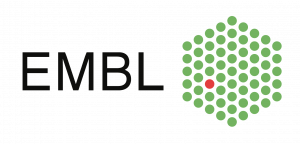Monday, September 9th and Tuesday, September 10th, 2024, 09:00 – 12:30, Anatolia College
STEM FLS, Eleftheriades FLS, Eleftheriades Seminar Room
The workshops focus on the implementation of practices that facilitate the teaching and learning process.
Workshops
1. Artificial Intelligence Literacy - ChatGPT and Language Teaching
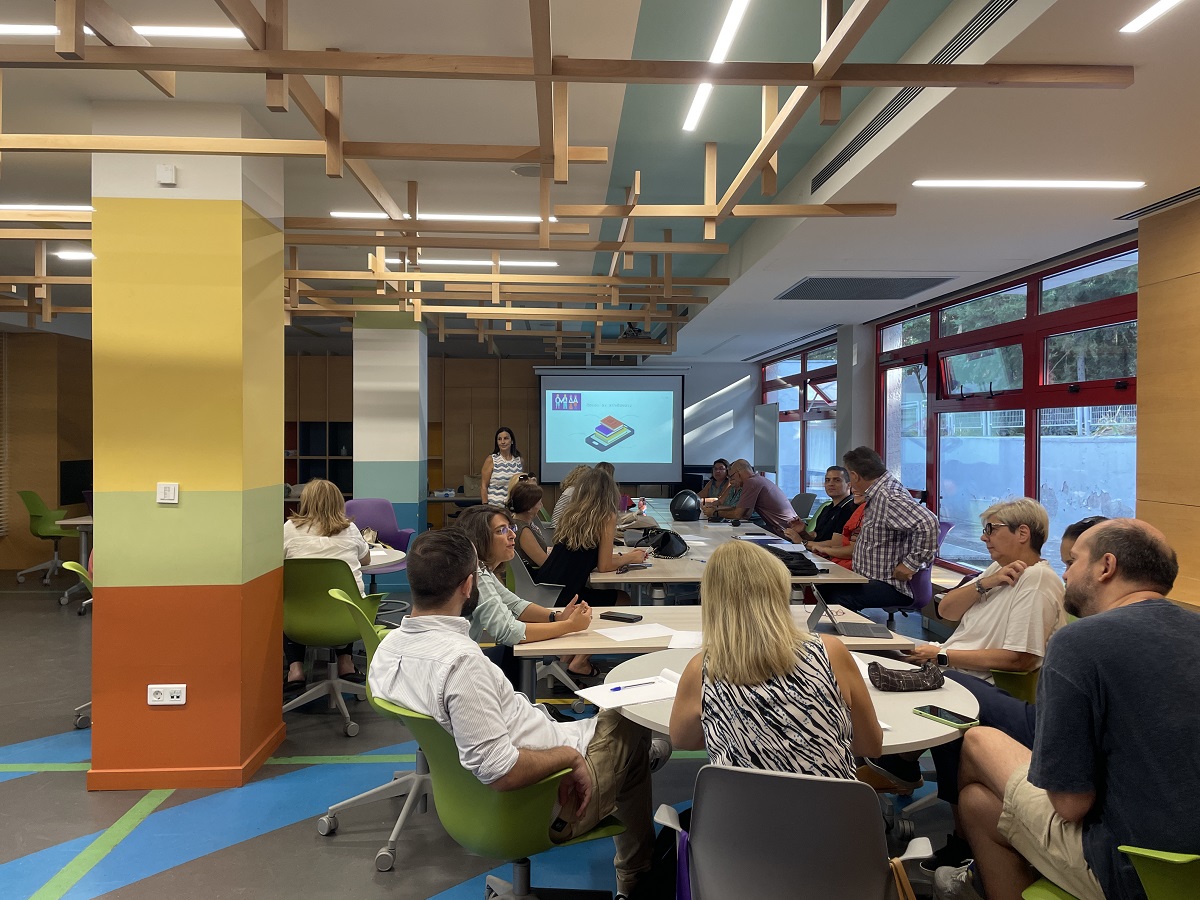
Recent research suggests that in the near future, Artificial Intelligence (AI) will drastically transform all aspects of human life and activity, from education and the arts to industry, the labor market, medicine, and commerce. In this new context, those literate in AI will replace those who lack similar skills, creating new forms of inequality.
The aim of the workshop is to define the concept of AI Literacy and to identify the skills that shape it, showcasing in an experiential way how AI can be integrated into language teaching.
The workshop is aimed at primary and secondary education teachers involved in language teaching.
Instructor
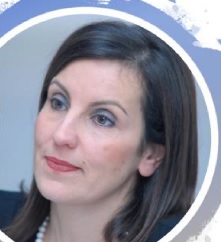 Dr. Zoe Gavriilidou
Dr. Zoe Gavriilidou
Zoe Gavriilidou is a Professor of Linguistics at the Democritus University of Thrace (D.U.Th.) and a Visiting Professor at the University of Chicago. She has served as Dean of the School of Classical and Humanities Studies, and Chair of the Department of Greek Philology at D.U.Th. She also served as Coordinator of the Teaching and Learning Support Offices Network (KEDIMA) and head of the English-language "BA in Hellenic Studies" program at D.U.Th.
During her tenures, she placed particular emphasis on promoting equal access and inclusion, overseeing the creation of a toolkit, a series of educational videos, and scientific articles.
She participated on the special committee working on the "New School - 21st Century School" program for the reform of curricula for language and literature. In 2022, she completed the writing of the curriculum for teaching Greek as a Heritage Language in America, commissioned by the Greek Orthodox Archdiocese of America. She has authored nine books, over 140 journal articles, and edited 17 collective volumes.
In 2024, her book "Teaching and Learning Language with ChatGPT" was published, marking a shift in her academic interests toward the use of Artificial Intelligence in education. In this context, she attempts to define the concept of AI literacy while exploring how AI can contribute to issues of accessibility.
2.
Presentation A
Artificial Intelligence and Education
Do chatbots lead to a technological revolution, fearful behaviors and withdrawal, or to reflection, initiatives, and a change of course?
The thoughts are many, sharp, and chaotic... and an attempt to organize them... and other questions as well... Is the evolution of technology for the few? Will those who understand it benefit, becoming faster, more reliable, more informed, more creative, more complete, and stronger?
Presentation B
Utilization of Artificial Intelligence by Teachers and Students
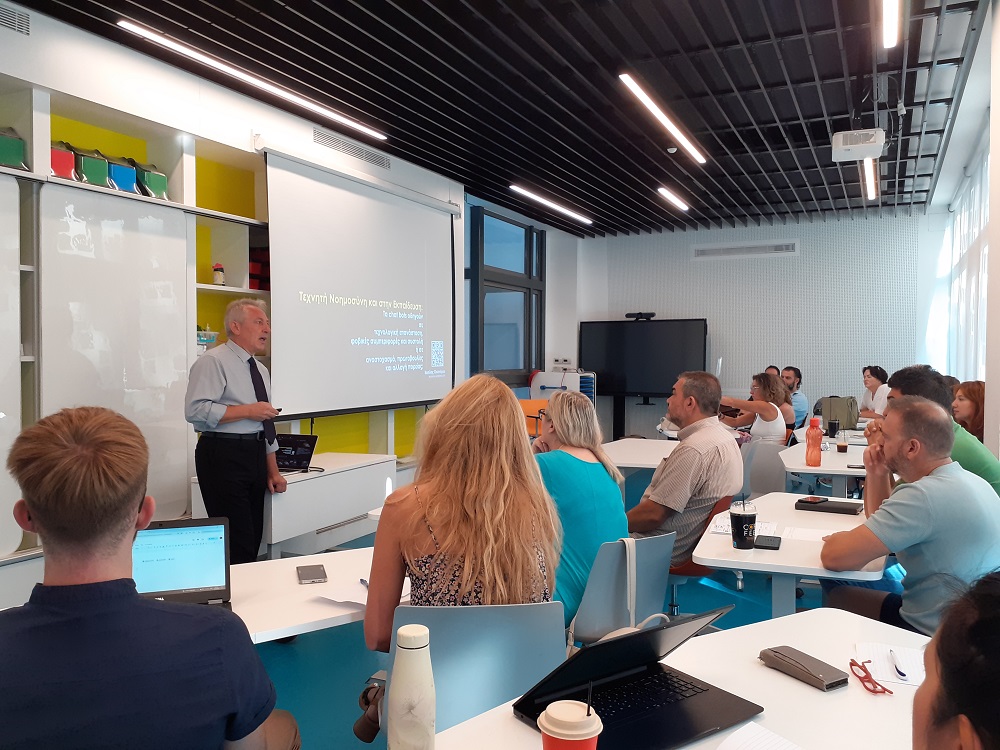
Examples of using AI applications in lessons and other school activities.
How can a teacher acquire a digital assistant that will ease their work and motivate further creativity?
How can they use their critical thinking and "communicate" effectively with chatbots to create:
- lesson plans, comprehension and feedback questions, questionnaires, and assessment tests
- math problems, methods/practices for understanding mathematical concepts
- history presentations, historical timelines, narratives of historical figures that are transformed into videos
- plays, poems set to music using digital applications
- illustrations and storytelling in students' texts
- animation using students' drawings
- announcements, texts for websites
Instructor
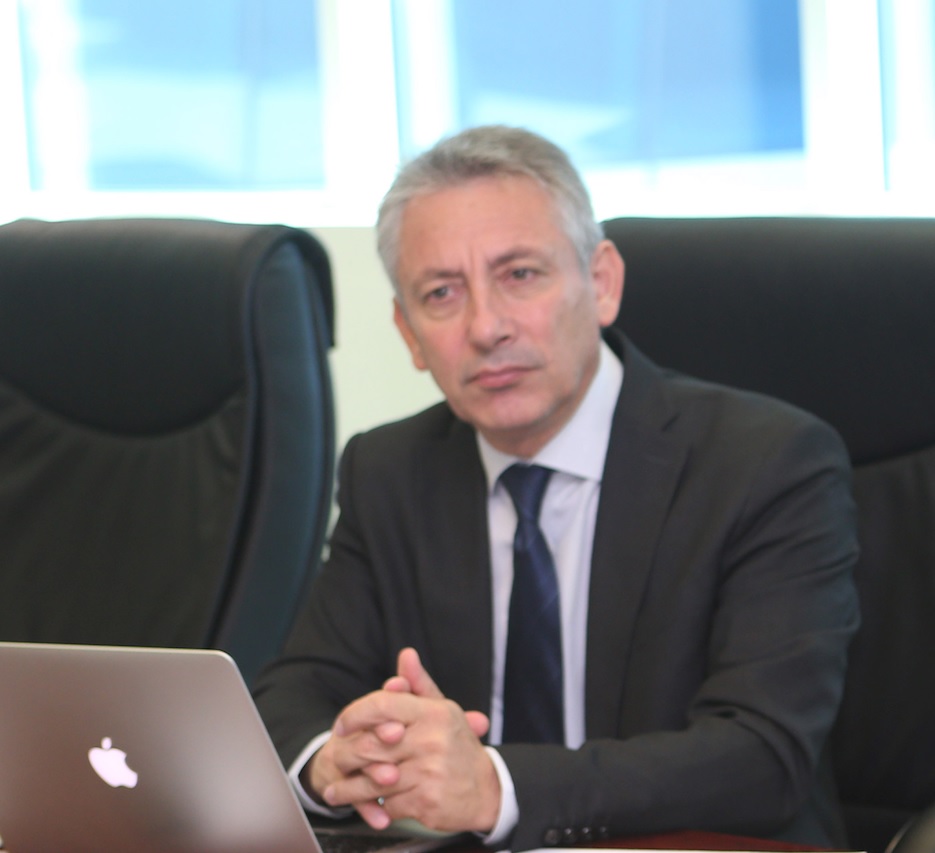 Vasilis Oikonomou
Vasilis Oikonomou
Vasilis Oikonomou holds the position of IT Consultant at the Hellenic Foundation for Culture. He served as the Director of IT and Digital Education at the Hellenic-American Educational Foundation – Athens College and Psychico College. From 1994 until 2020, he was Head of IT and Digital Education at Doukas School, as well as Head of the Student Computer Group. He is a certified company evaluator and has been a consultant for SoFIA Education Experts Ltd. since 2014.
In 2013, he was awarded the distinction of Expert Educator and represented Greece in the Microsoft Global Forum for Innovative Educators (2014) in Barcelona. In 2014, his student team won the European programming competition, Kodu Kup (organized by e-skills, European School Net, and Microsoft). In 2015, he was re-elected as an Expert Educator (MIEExpert15) and was named one of thirteen Microsoft Fellows globally, serving as a judge for the teams competing in Seattle (USA).
He has been recognized and awarded for projects related to the introduction of the "1:1" methodology in education, as well as for the impact of digital material on educational methodologies and the role of the teacher. He has participated as a researcher and analyst-programmer in the design and implementation of over 50 research projects related to ICT in Education and Special Education. He has also contributed to the development of research and educational software in these areas, with over 80 software titles, while simultaneously training hundreds of educators in the use of ICT in teaching practices. He has developed Management Information Systems (M.I.S.) in various programming environments.
He has published articles in journals and presented papers at scientific conferences. His research interests focus on expanding the "1:1" methodology, Mixed Reality in education, interactive boards, and high-quality educational software. His vision is to engage as many students, educators, and parents as possible in leveraging technology in education.
3. Educational Practices for Artificial Intelligence Literacy
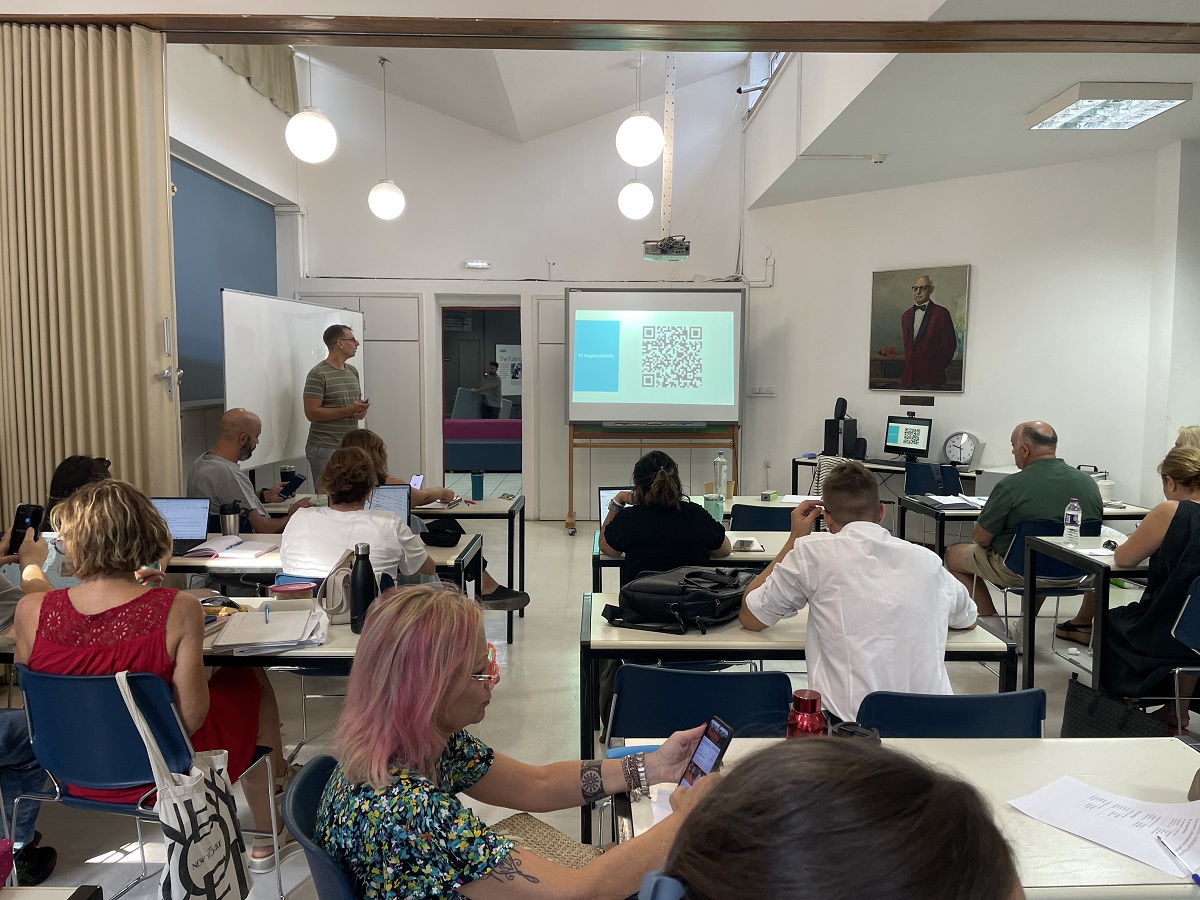
Artificial Intelligence has now entered our lives and influences our daily routines. The focus has shifted toward using tools and developing technocratic knowledge, without considering the need to cultivate critical thinking. It is now essential in the field of education to recognize and introduce educational practices that enable understanding of how AI works, and to identify ways to develop critical thinking.
In this experiential seminar, participants will engage with innovative material used at the University of Crete and explore new educational practices implemented at the Experimental High School of Rethymno. These practices are closely linked with the approach to Artificial Intelligence Literacy. The educational material comes from the University of Crete's scientific program "Defining and Developing Artificial Intelligence Literacy."
Instructor
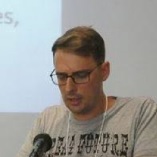 Dr. Konstantinos Sipitanos
Dr. Konstantinos Sipitanos
Konstantinos Sipitanos holds a Master’s degree (MA) in Linguistics (2016) and a PhD (2020) in Language Teaching and Participatory Research Methodologies from the University of Crete (UoC). He has worked as a researcher and lecturer at the University of Crete and the National and Kapodistrian University of Athens (NKUA), as well as an adjunct faculty member in the postgraduate program "Contemporary Linguistic Trends for Educators" at the Hellenic Open University (HOU). He has published numerous articles in scientific journals and chapters in Routledge and Cambridge Scholars Publishing volumes.
In 2023, his monograph titled Action Research and Literacies: From Theoretical Framework to Teaching Practices for Amplifying Youth Voices was published by Gutenberg Press. He has also participated in EU-funded research programs under Erasmus+ and in state-funded projects such as "D2AIL 4 all".
His main research interests focus on literacies (media, critical, digital), critical discourse analysis, participatory action research, and amplifying student voices.
More

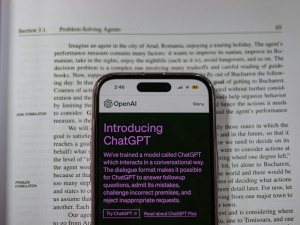

 Dr. Zoe Gavriilidou
Dr. Zoe Gavriilidou
 Vasilis Oikonomou
Vasilis Oikonomou
 Dr. Konstantinos Sipitanos
Dr. Konstantinos Sipitanos

